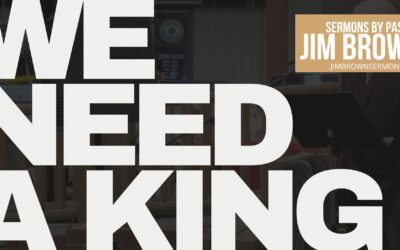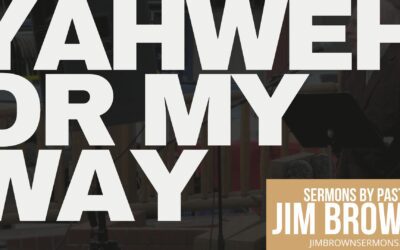JANUARY 2, 2025
EP 8: PEOPLE BECOME LIKE THE GODS THEY WORSHIP: FALSE Idolatry
Genesis 1
Ever wondered how the gods we worship shape who we become? Dive into this powerful sermon exploring the true worship definition, the danger of false idolatry, and the beauty of creationism. You’ll rethink what it means to worship God and discover how these timeless truths impact your life today.
Sermon Study Resources
Sermon Notes
Your Subtitle Goes Here
Sermon Notes: People Become Like the Gods We Worship
Introduction
- Foreign concepts in daily life: Examples include video games and vibration analysis.
- Similarly, the name “Jesus” and concepts like “dying to self” can feel foreign to many.
The Context of Genesis
- Written by Moses ~1450 years before Christ, about events occurring 2,500–6,000 years earlier.
- Addressed to Israelites after 430 years of slavery in Egypt.
- The Torah (first five books of the Bible) served as instruction to shape their identity and prepare them for the Promised Land.
Cultural Background
- Israelites were exposed to Egyptian gods characterized by:
- Trickery, murder, incest, and deceit.
- Examples: El (tyrant god), and Anth (violent goddess).
- Such gods influenced the morality and culture of the Israelites, leading to chaos and degeneration.
Key Point: People Become Like the Gods They Worship
- A culture reflects the characteristics of its gods.
- Worshiping false gods leads to chaos and immorality.
Why Start with Creation?
- Genesis begins by contrasting the chaos of other gods with the order of the true God.
- Creation establishes God’s authority, goodness, and purpose for humanity.
The Creation Account (Genesis 1-2)
- Day 1: Creation of light, dividing day and night.
- Day 2: Creation of the sky and separation of waters.
- Day 3: Formation of dry land, seas, and vegetation.
- Day 4: Creation of the sun, moon, and stars to govern time.
- Day 5: Creation of sea creatures and birds.
- Day 6: Creation of land animals and mankind, the pinnacle of God’s creation.
- Day 7: God rested, establishing the seven-day week.
Key Insights:
- God is a God of order, not chaos.
- Humans are created in God’s image, distinct from all other creation.
- Both male and female reflect God’s nature.
Three Key Concepts from Genesis 1-2
-
God Is Sovereign Over Creation
- God is the ultimate creator, not part of the universe but over it.
- Trusting in God’s sovereignty removes the need to control everything ourselves.
- Romans 1:20-22 emphasizes the futility of failing to honor God as creator.
-
False Gods Are Illusions
- Other gods, such as those worshiped in Egypt or Babylon, are man-made constructs.
- Even elements like the sun, moon, and stars are creations of God, not deities.
- Astrology, horoscopes, and similar beliefs are distractions from worshiping the true God.
-
God Has a Special Interest in Humanity
- God created humans with purpose and provides for their needs.
- Unlike false gods that demand appeasement, God seeks a loving relationship with mankind.
- Humans are created in God’s image to reflect His nature to the world.
Application: Becoming Like the God We Worship
- The God we worship shapes our character:
- Fruit of the Spirit: Love, joy, peace, patience, kindness, etc.
- Chaos or immorality in life may indicate worship of false gods.
- Worshiping the true God brings transformation and peace.
- Our worship today mirrors the new creation God promises in the future.
Looking Ahead: New Creation
- The current creation is marred by sin, but God is continually creating and restoring.
- Revelation 21 describes a future where God’s glory replaces the sun and moon as the source of light.
- God’s ultimate plan is a new heaven and earth without chaos or darkness.
Closing Reflection
- “What is the center of your worship? Are you becoming like the true God or like the false gods of this world?”
- 1 Thessalonians 4:14-18: A reminder of the hope we have in Christ’s return.
- Worship is about honoring God for who He is and trusting in His eternal plan.
Prayer
- Acknowledge God as the sovereign creator.
- Thank Him for His provision and purpose.
- Trust in His promises for the future.
Bible Verses
Your Subtitle Goes Here
Genesis 1:1 (NLT)
“In the beginning, God created the heavens and the earth.”
Genesis 1:2 (NLT)
“The earth was formless and empty, and darkness covered the deep waters. And the Spirit of God was hovering over the surface of the waters.”
Exodus 20:9-10 (NLT)
“You have six days each week for your ordinary work, but the seventh day is a Sabbath day of rest dedicated to the Lord your God.”
Romans 1:20-22 (NLT)
“For ever since the world was created, people have seen the earth and sky. Through everything God made, they can clearly see his invisible qualities—his eternal power and divine nature. So they have no excuse for not knowing God. Yes, they knew God, but they wouldn’t worship him as God or even give him thanks. And they began to think up foolish ideas of what God was like. As a result, their minds became dark and confused. Claiming to be wise, they instead became utter fools.”
Hebrews 13:8 (NLT)
“Jesus Christ is the same yesterday, today, and forever.”
John 8:12 (NLT)
“Jesus spoke to the people once more and said, ‘I am the light of the world. If you follow me, you won’t have to walk in darkness, because you will have the light that leads to life.'”
Revelation 21:23 (NLT)
“The city has no need of sun or moon, for the glory of God illuminates the city, and the Lamb is its light.”
1 Thessalonians 4:14-18 (NLT)
“For since we believe that Jesus died and was raised to life again, we also believe that when Jesus returns, God will bring back with him the believers who have died. We tell you this directly from the Lord: We who are still living when the Lord returns will not meet him ahead of those who have died. For the Lord himself will come down from heaven with a commanding shout, with the voice of the archangel, and with the trumpet call of God. First, the Christians who have died will rise from their graves. Then, together with them, we who are still alive and remain on the earth will be caught up in the clouds to meet the Lord in the air. Then we will be with the Lord forever. So encourage each other with these words.”
Sermon Slides
Your Subtitle Goes Here
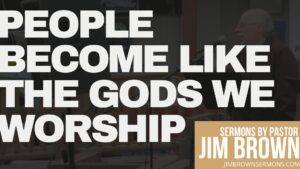
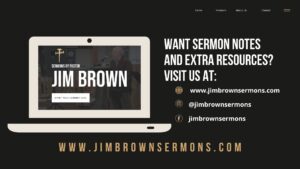
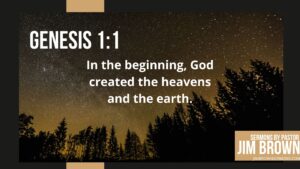
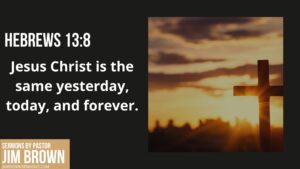
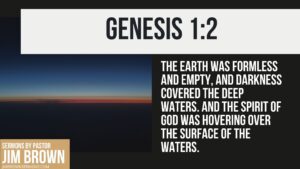
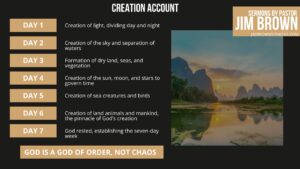
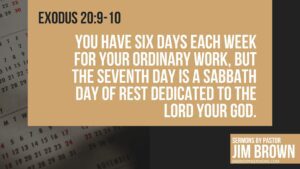
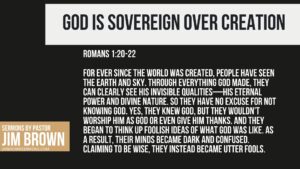
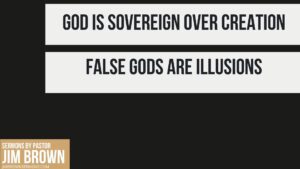
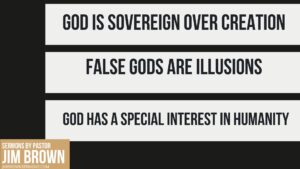
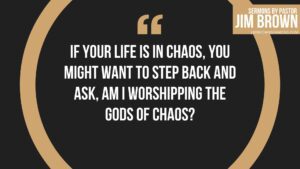

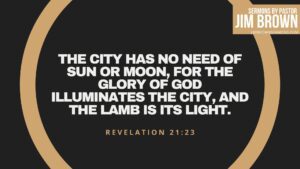
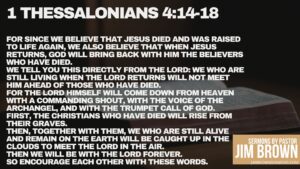
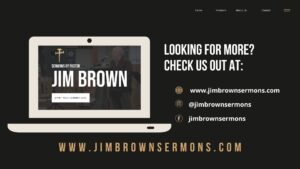
Related Song List
Your Subtitle Goes Here
Recommended Resources
Your Subtitle Goes Here
Books on Idolatry and Worship:
- Counterfeit Gods: The Empty Promises of Money, Sex, and Power, and the Only Hope that Matters by Timothy Keller
- This book explores modern-day idols and how they can take the place of God in our lives, offering biblical insights to refocus our worship.
- We Become What We Worship: A Biblical Theology of Idolatry by G.K. Beale
- Beale examines the idea that humans reflect what they worship and discusses the implications of idolatry for personal and societal transformation.
- Gods at War: Defeating the Idols that Battle for Your Heart by Kyle Idleman
- A practical and engaging guide to recognizing and overcoming modern idols that compete for our devotion.
- The Air I Breathe: Worship as a Way of Life by Louie Giglio
- This book presents worship as the essence of life and emphasizes the importance of directing worship solely to God.
- Not God Enough: Why Your Small God Leads to Big Problems by J.D. Greear
- This book challenges readers to let go of limited views of God and embrace His greatness, combating the idolization of limited concepts.
- Idols of the Heart: Learning to Long for God Alone by Elyse Fitzpatrick
- Offers practical guidance on identifying and overcoming idolatry in the heart to grow closer to God.
- Behold Your God: Rethinking God Biblically by John Snyder
- Examines what it means to truly know and worship God, challenging misconceptions and encouraging a biblical view of God’s character.
- The Gospel According to Satan: Eight Lies about God that Sound Like the Truth by Jared C. Wilson
- Explores common cultural misconceptions about God that lead to false worship and idolatry.
Books on Creationism and Biblical Foundations:
- The Genesis Record: A Scientific and Devotional Commentary on the Book of Beginnings by Henry M. Morris
- A verse-by-verse commentary on Genesis, blending scientific insights with a focus on God’s creative power.
- In the Beginning Was Information by Werner Gitt
- This book examines creationism from an information science perspective, emphasizing God as the ultimate source of all creation.
- The Case for a Creator: A Journalist Investigates Scientific Evidence That Points Toward God by Lee Strobel
- A compelling exploration of scientific evidence that supports the existence of a Creator.
- Made for His Pleasure: Ten Benchmarks of a Vital Faith by Alistair Begg
- A reflective book that helps readers align their lives and worship with God’s design and purpose.
- Creation and Change: Genesis 1:1-2:4 in the Light of Changing Scientific Paradigms by Douglas F. Kelly
- Examines the Genesis creation account, affirming its reliability in light of modern science and faith.
- Worship Matters: Leading Others to Encounter the Greatness of God by Bob Kauflin
- Focuses on the heart of worship, helping believers lead lives that glorify God in all areas.
- Gods at War: Defeating the Idols that Battle for Your Heart by Kyle Idleman
- Identifies the various idols that compete for our hearts and provides a Christ-centered framework to defeat them.
Books on Deepening Faith and Spiritual Growth
- Desiring God: Meditations of a Christian Hedonist by John Piper
- Challenges readers to find their ultimate satisfaction in God and true worship through a biblical perspective of joy in Him.
- With: Reimagining the Way You Relate to God by Skye Jethani
- Explores how Christians can move away from false perceptions of God and into a more authentic relationship of worship and trust.
- Not a Fan: Becoming a Completely Committed Follower of Jesus by Kyle Idleman
- Encourages believers to move beyond lukewarm faith and become true worshippers and followers of Christ.
- Holy Roar: 7 Words That Will Change the Way You Worship by Chris Tomlin and Darren Whitehead
- Explains seven Hebrew words for praise and worship, encouraging deeper and more meaningful worship practices.
- The Knowledge of the Holy by A.W. Tozer
- A classic work exploring the attributes of God and inspiring readers to worship Him for who He truly is.
Articles and Resources:
- “Resources on Idolatry” by The Gospel Coalition: This collection offers articles exploring the nature of idolatry and its implications for believers.
The Gospel Coalition - “What Is Idolatry? 15 Biblical Examples and How to Steer Clear of Them”: This article provides biblical examples of idolatry and practical advice on avoiding such pitfalls in modern life.
Hope No Matter What - “Recognizing and Avoiding the Trap of Idolatry” by Eternal Perspective Ministries: This resource discusses how to identify and steer clear of idolatry in contemporary settings.
EPM - “Worship Through Attention: Guarding Against Idolatry”: An exploration of how our focus and attention can become acts of worship and the dangers of distractions leading to idolatry.
Patheos - “The Idol of Self and the Gospel” by Core Christianity: This article examines the modern tendency to idolize oneself and how the gospel addresses this issue.
Core Christianity
Sermon Transcript
Your Subtitle Goes Here
People Become Like The Gods We Worship
All of us are confronted with foreign concepts, daily, things that we just don’t relate to. They come in a lot of different ways. We went to Chicago last spring and wanted to spend some time with the grandson doing things that he does, and at the time he was into Donkey Kong, an old video game I guess, but it’s a video game and I gave up video games at ping pong. I don’t know if you remember that, but about 25 years ago, you hooked this thing up to your TV set and you had this pedal that just kind of went up and down and a ball that went back and forth and you could change the speed and that was about it. And I didn’t do real well, so I gave up on the video games and here’s my grandson. He’s got this thing and he’s going, he’s trying to explain it to me and with his limited vocabulary on top of what he’s trying to get across, it was a foreign concept. Why these apes are jumping around, beating up people and things like that. I couldn’t quite get the drift of what you’re trying to accomplish. And that’s what it’s like. We go through life and things hit us and we say, I just can’t relate to that, but we see other people that can. I used to be in the business of vibration analysis.
Pretty interesting. Now all of us are exposed to vibration, right? But do we really care? Why would somebody care? Why would somebody want to analyze it? You know what vibration is? It’s when something moves back and forth, not just one direction. It’s got to move two directions. And if you wanted to analyze it, what you’d want to do is you’d want to measure how far it’s traveling during that stroke. And not only how far, but how fast. Pretty interesting, huh? Why would anybody want to know anything about vibration analysis? When your washers shaken, right? That’s all you care is the thing. Walking across the room and ripping out the hoses or not, that’s all you really care about. Vibration driving a car. Most people here I think drive a car that we got left in here right now. Many of them do. But do you really know a lot about the car?
Do you really care how it works and what’s going on under the hood other than when the little light comes on, it says check engine. So you pop the hood and say, yeah, there it is, checked it, but the light stays on. But really that’s a foreign concept to a lot of people. What’s going on under the hood? Think about cultures around the world where the name Jesus is foreign. It’s a foreign concept to even think about Jesus Christ and when hearing the name, it just doesn’t ring a bell or they really don’t care. Even in our own culture where the name is probably a lot more common, but the concept of dying to self is very foreign. You see, there’s these foreign concepts that they exist, they’re out there. We can’t deny their existence, but we have to determine what is it that’s important to pursue and help people understand. So we usually don’t think about the conditions when the Bible was written. Genesis, for instance, is one of those books that it just goes a long way back.
We say, well, what was trying to be said in the book of Genesis? Scripture was written by who or who wrote the book of Genesis? Did Adam write it and it got passed on for many generations or did some historians just keep on keeping track of what was going on? And they kind of compiled all their writings and came up with the book. Actually, the book of Genesis was written by Moses, and it was written about 1,450 years before Christ. Okay? Think about that 1,450 years before Christ, but it was written anywhere from 2,500 years to 6,000 years after the events of Genesis. So if you think about that here, you got these events that took place, let’s say 4,000 years ago and now today you’re going to try to write about him. Isn’t that what people are trying to do all the time with creation, trying to take something that was so far back and now rewrite it?
So Moses had a formidable task ahead of him. It wasn’t an easy thing and not only that, but he was doing it for the people of Israel and the people of Israel first began about 2000 years before Christ. So he’s doing this some 600 years, 650 years later, somewhere in there, 550 years later, he’s writing this down for the people of Israel. And these people of Israel had been spending 430 years as slaves in a foreign land. So really the context of what he was writing was a lot like when we tried to relate to other generations of people in other foreign lands, yet alone, not even in our own. So it was foreign concepts to foreign generations. And here’s Moses faced with the people trying to explain God. They had been exposed to a gods that really were very different than our God, and so they had to have an understanding of this God in order to go into the promised land. Now, what was the promised land? Well promised land was filled with people that make hell’s angels look like a Sunday school class.
They were not nice people and here the people of Israel had to move in and take over. And what were they going to move in with? What values? What was important to them? They didn’t have a clue at the time because their concept of God was very, very different than what things had already started out as their culture was very degenerated from living in Egypt. They were no longer people who looked like the people God would want ’em to look like. So the result of Moses’s task was the first five books of the Bible. It’s called the Torah and that what does Torah mean? Does anybody know instruction? That’s what it was. This was instruction. He knew the people needed instruction in order to move into the promised land and to live fruitful lives. So why start with creation? Why not just start with what he wanted them to know about God himself and his character?
It’s sort of like starting in kindergarten. You just got to start with some basic foundational issues. So why not start at the very beginning? The people of Israel had been exposed to many gods strange gods. These gods were a lot like people. Only worse these gods. They fought, they deceived, they engaged in all kinds of immoral behavior. Here’s one L who was the father of the gods is a brutal bloody type tyrant person. God. They looked at what they saw around them and they created a God of they thought he should look like based on what was going on L dethroned, his father mutilated him. He slays his own son and cuts off his daughter’s head. That’s the kind of God they worshiped in Egypt at the time. So then while these gods were fighting, there’s another God called Anth. It’s the mistress of all the gods and she enjoys the carnage.
She enjoys the whole fight. And so she says to her Father El that if he doesn’t do what she wants, she’s going to trample him like a lamb to the ground. So what do you think this kind of teaching about the gods did in terms of things that we go by honor your father and mother? Do you think it laid a good foundation for that? So what do you think the culture of the Israel people was like living under these gods trickery, murder, incest, deceit. That’s what you get from these gods. So could belief in Gods like that produce a first class generation of people? Could the culture really be top notch following Gods like that? See, it’s another sobering fact that people become like the gods. They worship people become like the gods they worship. So why start with creation when you’re trying to straighten that out? People believe some pretty wacky things about creation, don’t they? There’s always been stories about creation and the gods. As Moses sat in his tent, his head must have just been spinning thinking, what I’m about to tell these people is really not their worldview. How am I going to get this across? They’re going to think I’m crazy.
Here’s the creation story of the Babylonian empire. Close to that time in which the younger God kills one of the original parent gods, so he takes that parent God and he cut her corpse in half and half of it became the sky and the other half became the earth, and then from her head became the mountains and from her eyes flowed the Euphrates and Tigris rivers. That’s what they believed about creation. You say, well, that’s crazy. How could anybody believe that? Well, we believe some pretty wacky things these days. Still things haven’t changed a lot. Here’s a little story I found. It says many, many centuries ago, all this iron, glass, rubber, plastic fabric, leather and wires came up out of the ground. Furthermore, each substance fashioned itself into various shapes and sizes and holes evolved in just the right places and upholstery began to weave itself together.
Sounds strange. Yeah, it’s not too bad. After a while, threads appeared on bolts and nuts and amazingly as it may seem, each bolt found a nut with a matching thread and tightened itself up to it, and gradually everything sort of screwed up tightly in place and a little while later, correctly shaped glass glued itself to the right place. And you see these tires, they weren’t always round. They became round over time and then they found rims that fit them perfectly and kind of popped on and then they filled themselves with air one day many years ago, really centuries ago, some people were walking along and they found this vehicle sitting under a tree and one of ’em looked at it and thought, how amazing. I think we’ll call it an automobile, but there’s more. These little automobiles have an amazing way of multiplying themselves year after year, even changing a little bit every year real slightly to meet the demands of the public.
Actually that’s a process called auto mutations, auto mutations, the things people will believe. How did we get here? What’s the creation story? You just start piling on more years more. Add another billion years. If you can’t figure it out, it’ll happen. You can make it work. See, Moses knew it would be disastrous if the people of Israel believed that God was like other gods and here we are. We want to put God out on the shelf and say, okay, we’ll figure it out. We’ll figure out how it all took place. And God says, no. Let me show you. The Bible begins with the most essential element of the Torah of teaching, of instruction, the real story about God and how the people of Israel can be free to live wholesome lives following a God who is wholesome. It starts with in the beginning, God created the heavens and the earth. So you can turn to Genesis if you want, and we’re going to work our way through Genesis one and two this morning.
In the beginning, God created the heavens and the earth. Just a little side comment here, the word God there, the English language, the more and more you read about scripture and read commentaries and read what these Hebrew scholars and Greek scholars have to say, you say this English language is just misses a lot. I’ve never looked into Hebrew at all. It was again one of those foreign concepts. But I studied Greek for a little while and it was Greek, believe me, just to give a description of one word, a noun that you could add so many different endings to it. Will I add S to make it plural or apostrophe S to make it a possession? Well, they had dozens of endings that they can add to a word just to give it little different meanings. And so as we look at in the beginning, God, that’s sort of a plural word, that word God, the way they used it, but it’s not god’s.
It’s sort like the word snow. It’s a singular word, but there’s plurality to snow, isn’t there? There’s a lot of snow. So there’s a plurality to it and then created. It’s also singular. So this singular, plural, God created singularly the heavens and the earth. It’s sort of like the church. Are we singular here as the church or are we plural? Well, yes, we are one, aren’t we? Aren’t we one as the church? We are one made up of many components. We sure are. So that’s the concept. So Jesus is being introduced right there at the beginning of Genesis and the Holy Spirit, the plurality is there and you say, well, why didn’t God just say that right off the bat? Well, the people of Israel, and we have a long way to go in terms of changing our worldview in the way we think, and God knows that, that we’re slow learners, the people slow learners there.
So let’s start with one concept at a time, and I’ve just got some new computer programs and I can sit down and as I go through ’em, I can say, wow, I just found something new on the computer today. Was it new? No, it had always been there. It wasn’t anything new, but it was new to me, and that’s what it’s like to go through the Bible and start to study about God. There’s nothing new about God in the Bible. He’s not different in the Old Testament than he is in the New Testament, nor will he be in the future. He’s the same God. Hebrews 13 is kind of my core verse that I keep in mind as I prepare these lessons that Jesus Christ is the same yesterday, today, and forever. Yesterday, today and forever, he hasn’t changed. So God wanted to start out with the basics.
In the beginning, God created the heavens and the earth. Nothing could be clearer than that. It’s a perfect summary of everything. God created it all. The sky, the sea, the land, the solar system, everything. There was verse two starts with the details of that creation. It shows that there was a desolate place without order. There was chaos and the dark waters prevailed. Genesis one, two says, the earth was empty, a formless mass cloaked in darkness and the spirit of God was hovering over its surface. These three descriptions kind of summarize that there was no productive energy in the world. There was no life and there was no light. The only hope for the world was the spirit of God. Has that changed today? Does it change in the future? No. The only hope for the world is the spirit of God.
Rather than create chaos, as Israel’s gods had been doing from Egypt, our God brought order to it to the world. Days one through three provide what’s necessary for life. In verses four and five, day one, God created light. You need light in order for life to exist, and the day was divided into two parts. Then starting in verse six, creation of the sky and the separation of the waters. Most people believe that what happened was the clouds formed and the waters on the earth were formed and there was separation in between our atmosphere. Verse 10 begins with day three, creation of dry land by limiting the sea and then also the creation of vegetation. Okay, so now those are the first three days where God laid out the basic structure. Verses 14 through 19 is day four, and it returns back to the subject of light again, but this time it’s particular lights for the already created light carriers of that light that charted out time into today’s seasons years. One thing that I noticed that I had never noticed before is that the moon, the stars and the sun were all created after the earth. From my secular background in teaching, that was a pretty big shift for me because that’s not what I had learned, and I guess it’s one of those things I just took for granted. But to realize that it started with the earth, it started with a purpose for mankind.
Day five relates to day two, providing inhabitants for that sea. In that sky in the verses 24 through 25, the earth was no longer formless and void after day three. Now after day six, he’s filling it with creatures. So God is demonstrating he’s a God of order, not of chaos, not like the God that Israel was used to. No, he was demonstrating something very different about himself. This was a real change for them, a real worldview change, and this had got to affect them very deeply. Verse 26 says that more things went on that sixth day and just after the afternoon break, okay, God got busy with something else. There were fruit bearing trees, there were animals, there was light, there was water. There were days, there were seasons. Who was all this for? Well, he tops it off with his most important work of all, and that is made in his image. It’s mankind who was the rule as sort of his vice supervisor over the earth.
We are the peak of God’s creation. We are the purpose of all creation. Everything was done so far with us in mind. Then as you look at chapter two verses one and three, God gives the account of the seventh day, which he rested. See among the things we take for granted, and I think there’s many, but one of ’em is the week. A lot of us don’t think about it very much. What a week consists of, consider it for a moment. It breaks up our rest, play, work cycle for healthier lives, and that’s a result of the Bible. Other cultures didn’t always have that. Can you imagine now living in a culture that didn’t have a seven day, week, days, months, years, all that was governed by the sun and it’s very obvious and most people pick up that structure. But the week, why is it there?
The people of the ancient Mayans had alternated between 13 and 20 day weeks. Bali’s weeks were 10 days. Ancient Rome used eight days. The French had a 10 day week in which they gave up on it just in 1806. Okay, could you imagine? But the people were tired of these longer times before breaks. So God, really In Exodus 20, we find the first labor contract right In Exodus 29 through 10. It says Six days a week are set apart for your daily duties and regular work, but the seventh day is a day of rest dedicated to the Lord your God. See, people who followed the true God, the true God of creation had a special day just set apart to be with their creator. They had that special link that nobody else had with their creator. See, in Genesis one, one, it says, in the beginning, God created the heavens and the earth.
That was said simply. The rest of Genesis one through Genesis two, three says the same thing profoundly with more details. Then as you move into chapter two, verse four through the end of the chapters, what that is is actually the details of day six. Okay? It’s not a new day. It’s not a new thought process. It’s not a new working. It’s the details of day six starts in chapter two, verse four. It states that man’s body was formed from the earth and life came from the breath of God. Okay? So parts was from earth, part was from God. Life came from God, and today life still comes from God and our bodies only returned to the earth. The animals, the trees, everything was formed from the ground, but there was something different about mankind. He was formed from the ground in God’s image. It’s a big issue. It makes him separate and distinct from everything else that was created.
Then the woman was formed from the rib of man. Now, did you ever think about that? Why wasn’t the woman formed from the ground just like everything else created, but she was formed from the rib of man instead because God needed to demonstrate that she wasn’t just another part of the universe. She wasn’t just another part of creation just like everything else, kind of separate from man or mankind, but complete representative of God’s image, that it took both of them to represent God together. He’s got a very, very masculine aspect to his nature, and he’s got a female aspect to his nature, and God needed to create both to say it takes both to represent me. The woman was formed from man to remove any doubt that they had the same identity. They were both of the same stuff.
They were both given dominion. They were both told to populate the earth, and really that’s about the only commandment that people follow pretty regularly to this day, isn’t it to be fruitful and multiply. Other than that, we’ve kind of disregarded most of ’em. So what we’ve just looked at is a far cry from the structure found in Moses’ Day. Very different. The people had to really wrestle with this and say, I don’t understand it. These are all foreign concepts to me. But they needed to know this in order not to lose sight of God’s divine purpose for them that they weren’t just accidents, they weren’t just mistakes. There may be people that are mistakes in the world’s eyes, but there are no mistakes in God’s eyes. So teaching in Genesis one, Torah in Genesis one was very, very important to start with the basics. Success or failure in the people’s lives was based on them understanding these concepts, a true understanding of God, a true understanding of their relationship with him, a true understanding of the purpose that he had.
So as we look at Genesis one and two, there’s three things that we can kind of glean from that, that are concepts that Moses was getting across to them that just flew right in the face of what they had already learned, and those concepts are relevant for us today. The first concept is that God is the magnificent, wonderful, sovereign ruler overall creation. If we neglect that fact, we’re going to struggle. If they neglected that fact back in Israel, they would struggle. They needed to know who God is and respect him for that, honor him for that, and realize that nothing has come into being a part from almighty God. We can’t brush that off either. He’s not just a part of the universe, some cosmic force. No, he is over the universe just like a person who produces a painting. Well, they’re not a part of that painting. That painting has no control over them. No, it is an expression of them. Just like the world in all of creation is an expression of God. He’s not a part of it. He’s the creator of it.
So if we have a mistrust in God as Father, as Almighty God, as sovereign, if we don’t trust him with that, we’re going to struggle in our lives and it’s going to drive us to want to be in control. Why? Because we haven’t accepted Genesis one, one, that God is in charge of it all. Instead, we feel like somehow we need to take that control. In Romans one 20 through 22, I’m going to read this, it says, from the time the world was created, people have seen the earth and the sky and all that God had made. They can clearly see his invisible qualities, his eternal power and divine nature, so they have no excuse whatsoever for not knowing God. Yes, they knew God, but they wouldn’t worship him as God or even give him thanks, and they began to think up foolish ideas of what God was like. The result was that their minds became dark and confused, claiming to be wise, they became utter fools. Instead, the apostle Paul was pointing out that failure to recognize Jesus as creator and give him thanks was the first step towards futility, towards idolatry, towards moral chaos.
The ills of our society aren’t new. The things we’re struggling with in government, the things we’re struggling with immorality and drugs and those things going on, they’re nothing new. God was trying to start the process right at the beginning of dealing with the failure of mankind. See, the fallen culture of Israel believed that it took some sort of human attempts in order to influence God, and they needed to try to influence him to make him do what they wanted him to do. Our culture is really no different. We try to make up what God is in order to do what we want to do and have him fit into our box. We’re obsessed with wanting to be in control of life, and when we fail to recognize God is Lord of all creation and be thankful for his provision, we’re liable to believe in anything.
Then second concept is that other gods don’t even really exist. They’re just delusions promoted by the father of lies. They’re not even there. See, when Genesis was written, this was one of the most remarkable put downs ever without even putting down the gods themselves, just the way it’s stated, it’s saying they’re not even there. They don’t even exist without even mentioning ’em. It undercuts all the false gods. The idea of the sea as the kingdom of another God is rejected. You know what? The sea is water. That’s what he’s saying, the earth. It’s just land with no water on it. That’s what he’s saying.
How about the moon, the stars, the sun? What are they? Just lights? Not gods. Some are greater, some are lesser. That’s what it says. They perform a function for man. They’re there to be at our service and to serve us. Even the names Sun, moon Stars are not mentioned at that time because God didn’t want the people to get confused and think that there was some sort of personal name to these lights. The names didn’t come late until later. So in these few simple statements, the lies revealed that there’s no special power in the sun, in the stars or in the earth or in anything else. Just like today, there’s no power in astrology or horoscopes or any of that other stuff that we turn to. It’s all dead. It’s all figments of our imagination. Now, there’s a greater God who’s created it all and has power over it all. The greater and lesser lights are far from controlling us, and it’s ironic that God created those for our benefit. Yet mankind has turned around and worshiped them rather than the creator.
It’s a pagan or godless concept to fear the world in circumstances around it. We don’t have to worry about tomorrow, do we? But we do, and the more we worry about tomorrow, the more we’re buying into, there must be another God out there. There must be something that I can control, something I can have control over. When we believe that God is in control of all things, that he is the sovereign God, then we can rest in that, that he is good. It’s also a pagan concept to believe that we need to appease God in some way, and that comes under concept number three, that God has a special interest in mankind. It’s God who says that I’m here to love you. You’re not here to serve me. Jesus says, I came into the world not to be served, but to serve. God is not at the mercy of our whims.
We can’t tell him what to do. Okay, God, you’re my servant, so do this, do that. No, he came to love us and to show us how to love him back and to lead us in that process. The Genesis account shows that mankind is the peak of God’s creation and that God meets the needs of man. He came and he took care of it all, whatever we need, but he is not subjected to our whims. In the Western culture, we sell our souls in order to get significance, security acceptance, to get love when God has already provided that for us. We don’t have to go anywhere to be accepted, to be secure, to be significant, to be loved, but going to God and to the degree we go somewhere else to get those basic needs met. To that degree, we’re participating in idol worship.
It’s already ours and it’s already been proven in Jesus Christ. We bear a similarity to God that distinguishes us from all creation. We’re in his image, but it doesn’t stop there. Creation just doesn’t stop with what took place. In Genesis today, we have the privilege to see what God is like in a number of situations. It’s sort of like learning more about that computer program. We see more of him revealed than the people back then did by studying the Bible. We can see how he related to the human race over the years. We can see how he worked under different circumstances in human’s lives. The Bible communicates what God is like in many, many, many different events. By studying these carefully, we begin to know and understand God, but why do we want to do that? Why does anybody want to know and understand God well to apply it to our lives? Because God wanted to lay the foundation down for the people of Israel so that they can live wholesome lives, lives at peace with him. That’s the same reason He wants us to know him today because people become like the God they worship.
Do you believe that the truth about the Creator God was critical to the foundation of the people of Israel and it’s equally important for us today? Take a look at yourself. What do you like? If people become like the God they worship? What do you like? What is God like? God? It says about the fruit of the spirit, love, joy, peace, patience, kindness, right? Is that what you’re like? Maybe if you’re not like God, it’s because you’re not worshiping the right God. Maybe you’re like the God you worship, so what do you like? That’s a good way to find out what’s really the center of worship in your life, and if you’re like the true living God, then you know you’re worshiping the right God, but if you life is in chaos, you might want to step back and say, am I worshiping the gods of chaos?
The ones of darkness? See, the creation story continues. It doesn’t just stop in Genesis. It develops in our own lives. God’s creating new creations in Christ. Day by day, we are being changed into the image and likeness of God and reflecting that image and likeness to the world around us, but it really doesn’t stop there either. God says that one day there’s going to be another new creation. Scripture teaches that as much as Christians are new creations in Christ and that he brought order where there was once chaos, darkness where darkness gives into light, we also now have life in Christ. This creation is marred by sin, something that we live with on this earth, but their day is coming. Jesus says that I’m the light of the world, and if you follow me, you won’t be stumbling through the darkness, through the chaos because you’ll have the light that leads to life, that inner light, that inner life both will be giving you guidance through this darkness, through this chaos that still exists due to sin.
See, in the future, there’s one who’s going to give a final light to our final destiny. Revelations 21 speaks to this, and the city has no need of the sun or the moon. Now, he’s talking about the future city. For all of us who believe the city has no need for the sun of the moon, for the glory of God, illuminates the city and the lamb of God is its light. When God talks about the new creation, the new heaven and the new earth, he’s not saying it’s going to just return back to its original condition. No, it’s something all new. It hasn’t got a hint of darkness or chaos in it. So God is still creating today, and he’s going to continue to create until there’s the new heavens and the new earth. Because of this, he alone is able to bring man to the place of honor and glory.
We can’t get there ourselves. We can only do it through Jesus Christ. We still live in a fallen world. We still have disasters. There’s still injustice. Sometimes it seems like man’s inhumanity to man just prevails, and we have questions, but we aren’t to look to the world for our answers. We’re only to look to God for our answers, the creator, the sustainer of all things. Only the true God deserves all of our worship, and even when our personal events seem to beyond our ability to understand or beyond our ability to control, we can always rely on the fact that we’ve got a sovereign all knowing, all loving, all trustworthy God, and we do that while we await Christ’s return. Pray with me as I read through one Thessalonians four 14 through 18, for since we believe that Jesus died and was raised to life again.
We also believe that when Jesus comes, God will bring back with Jesus, all the Christians who have died. I can tell you this directly from the Lord. We who are still living when the Lord returns will not rise to meet him ahead of those who are in their graves. For the Lord himself will come down from heaven with a commanding shout with the call of an archangel, and with the trumpet call of God first, all the Christians who have died will rise from their graves. Then together with them, we who are still alive and remain on earth will be caught up in the clouds to meet the Lord in the air and remain with him forever. So comfort one another with these words.
Lord, I pray right now that you’d comfort us with those words, that you are coming again, that the answers aren’t here. Help us understand that, Lord, help us realize that there’s so much more to life than what we’ll ever see here, but there’s eternal life with you, our hope of glory. And Lord, as we contemplate this, that we see that Jesus Christ is the same, the same God yesterday, today, and yes, forever. And may we worship and fall down at your feet, Lord, for who you are and what you’ve delivered us from, but more so Lord, what you’re delivering us to. We thank you. We praise you. We love you. In Jesus name, amen.
Original Sermon Date: September 11, 2005
© 2024 Sermons by Pastor Jim Brown www.jimbrownsermons.com All rights reserved.
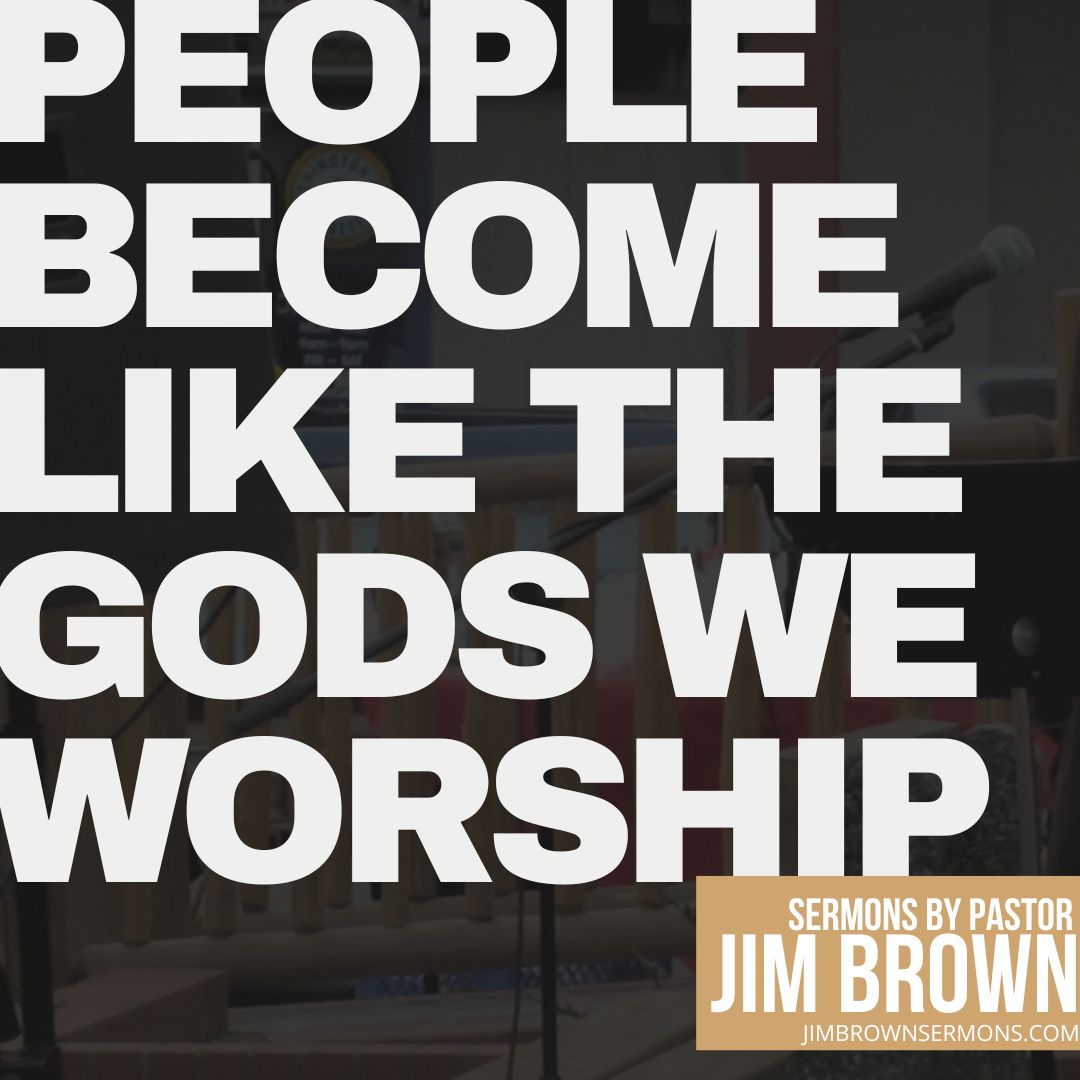
People Become Like the Gods We Worship: Understanding Worship and False Idolatry
Have you ever stopped to consider how the gods we worship shape who we are? Whether it’s the true God, false idols, or even the modern “gods” of success, wealth, or power, the focus of our worship determines our identity and values. This thought-provoking sermon explores the worship definition, the dangers of false idolatry, and the timeless truth that people become like the gods they worship. Let’s dive into the biblical insights and lessons that help us reexamine the role of worship in our lives.
The Power of Worship: What Does It Mean to Worship?
Worship is more than rituals or songs; it’s a declaration of allegiance, reverence, and love. The worship definition, as seen in the Bible, encompasses how we direct our time, attention, and devotion. To worship God means to honor Him with our lives, thoughts, and actions. On the flip side, when we worship false idols, whether ancient or modern, our values and character align with them—often leading to chaos and discontent.
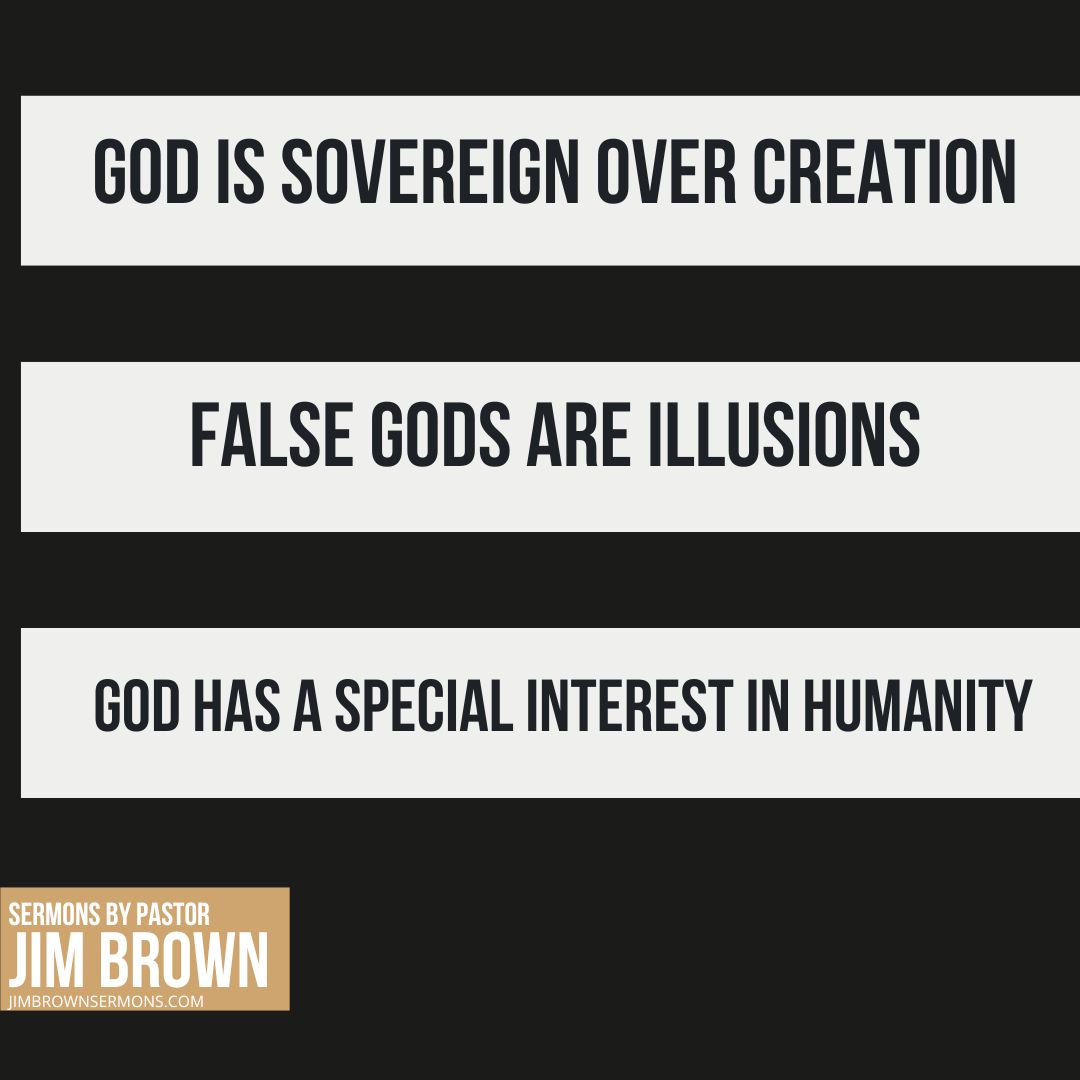
False Idolatry: Understanding Its Dangers
The Bible repeatedly warns against false idolatry. Ancient cultures created gods in their own image—brutal, deceptive, and chaotic. For example:
- Egyptian gods like El and Anth reflected traits of violence and deceit, shaping a degenerate culture.
- In Babylonian myths, gods created chaos, such as slicing a deity in half to form the earth and sky.
In idolatry defined by the Bible, these false gods are mere human constructs, incapable of providing real purpose or hope. Even today, modern idols like materialism, power, or self-reliance offer only temporary satisfaction while leading us away from God.
Genesis: God’s Answer to Chaos
The creation account in Genesis begins with these powerful words:
Genesis 1:1 (NLT): “In the beginning, God created the heavens and the earth.”
This foundational truth introduces a God of order, not chaos, who created the universe with purpose and love. Unlike the gods worshiped by surrounding cultures, the God of the Bible brings light, life, and structure.
Creationism teaches us that the world is not the result of random chaos but the intentional act of a sovereign God. It challenges us to trust in God’s creative power and purpose for our lives.
The Image of God: Humanity’s Unique Identity
One of the most striking truths in Genesis is that humans were created in the image of God:
Genesis 1:27 (NLT): “So God created human beings in his own image. In the image of God he created them; male and female he created them.”
This sets humanity apart from all other creation. To be made in God’s image means we are called to reflect His nature—love, justice, mercy, and creativity. It also reminds us of the danger of worshipping anything less than the true God, as doing so distorts our identity.
Why Worship God?
Unlike false gods, the true God doesn’t demand appeasement or exploitation. Instead:
- He provides for our needs.
- He seeks a relationship with us.
- He gives us purpose and hope.
Worship meaning in the Bible points to a God who loves us unconditionally and calls us to reciprocate that love by worshiping Him in spirit and truth.
People Become Like the Gods They Worship
A key takeaway from this sermon is the transformational nature of worship. Consider these questions:
- Is your life marked by peace, love, and joy? Or is it filled with chaos and discontent?
- What does your character reveal about the god you worship?
When we worship God, we reflect His character, growing in qualities like love, patience, and kindness. But when we worship idols, we mirror their emptiness and deceit.
Biblical Verses on Idolatry and Worship
The Bible provides numerous insights into the dangers of idolatry and the blessings of true worship:
- Romans 1:20-22 (NLT): “From the time the world was created, people have seen the earth and sky and all that God made. … Claiming to be wise, they became utter fools.”
- Exodus 20:3 (NLT): “You must not have any other god but me.”
- Revelation 21:23 (NLT): “The city has no need of sun or moon, for the glory of God illuminates it, and the Lamb is its light.”
These worship verses emphasize the importance of honoring God as the Creator and rejecting the lies of false idols.
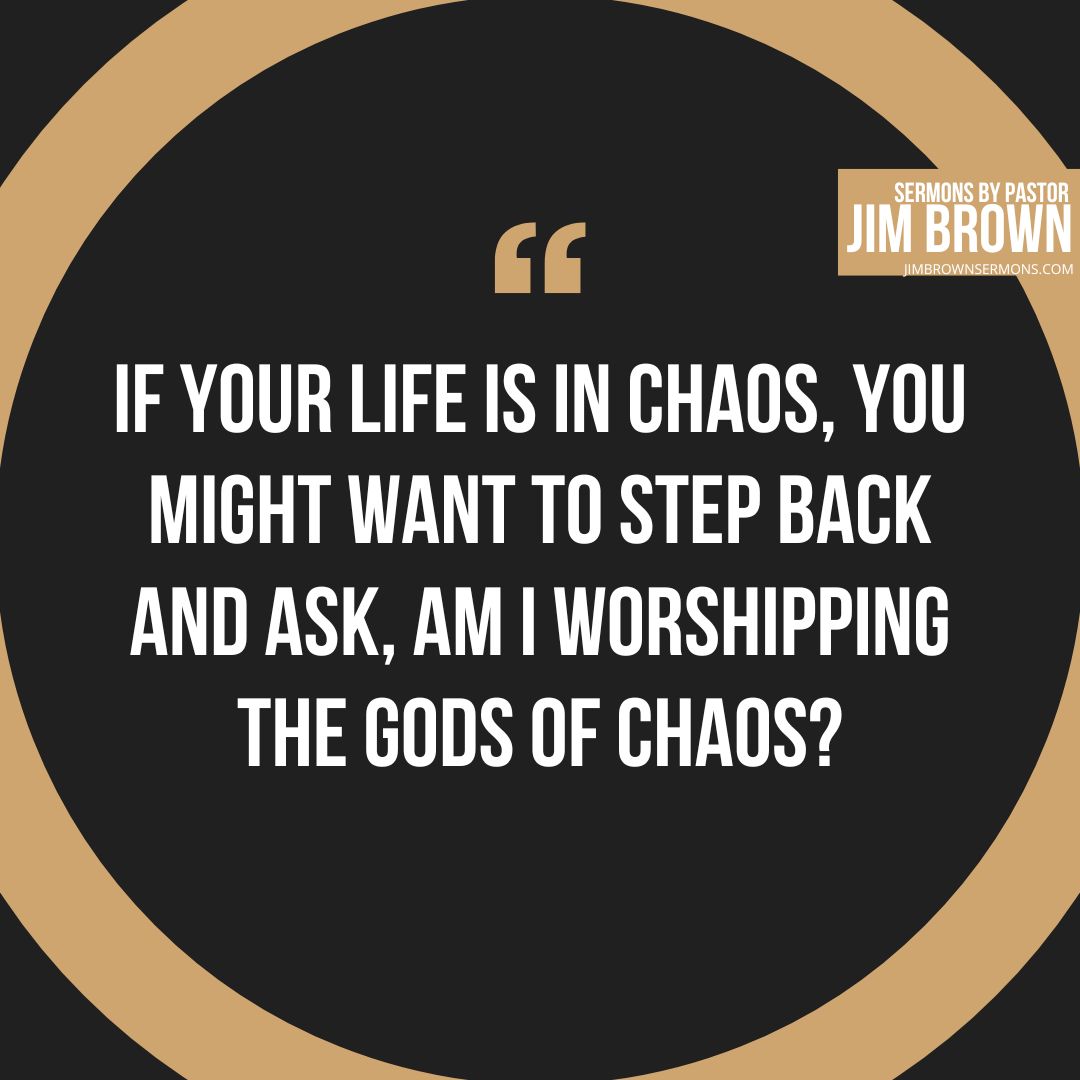
Modern Idols: Recognizing and Rejecting Them
Today’s idols may not look like golden statues, but they are just as dangerous. Think of the modern pursuit of:
- Wealth
- Power
- Social status
- Self-reliance
When we elevate these above God, we fall into the same trap as ancient cultures. The antidote is to worship God alone and align our lives with His truth.
Creationism and the Hope of New Creation
The Bible begins with the creation story, but it doesn’t stop there. God’s creative work continues in us:
- As new creations in Christ, we are being transformed daily to reflect His image.
- Revelation 21:5 (NLT): “Look, I am making everything new!”
God is not finished with us or the world. One day, He will bring about a new heaven and earth, free from chaos and darkness. Until then, our worship and faith point us to that glorious hope.
Practical Steps for True Worship
To worship God and avoid the pitfalls of idolatry, consider these steps:
- Reflect on Your Priorities: What do you spend the most time and energy on?
- Immerse Yourself in Scripture: Study creation Bible verses and idolatry verses in the Bible to deepen your understanding.
- Seek God in Prayer: Ask Him to reveal any idols in your life and to help you worship Him wholeheartedly.
- Live in Community: Surround yourself with others who encourage you to grow in faith and worship God.
Conclusion: Worship God, Reflect His Light
The gods we worship determine the lives we lead. Will you worship the one true God, who brings light, order, and purpose? Or will you fall for the lies of false idolatry, which lead only to chaos and despair?
This sermon challenges us to examine our worship and realign our hearts with God. As we do, we reflect His love and truth to a world desperately in need of hope.
Original Sermon Date: September 11, 2005
© 2024 Sermons by Pastor Jim Brown www.jimbrownsermons.com All rights reserved.
RECENT SERMONS
Ep 18: THINKING BACK LOOKING AHEAD | God’s Love Never Fails
Find hope in the midst of uncertainty as this sermon reveals how God’s love, mercy, and faithfulness remain steady—even when life doesn’t go as planned.
EP 17: WE NEED A KING | Finding True Security in God
Feeling lost and insecure? True security in God comes from trusting Him completely. Learn how seeking God brings peace and strength.
EP 16: WHAT ARE YOU DOIN’?! | Trusting God’s Plan Changes Everything
When life feels uncertain, trusting God’s plan changes everything. See how His faithfulness, redemption, and promises lead to true victory in Christ.
EP 15: WHO’S NEXT | How to Truly Love God with All Your Heart
Loving God isn’t just a feeling—it’s a way of life. True love for God starts with action. It’s about trusting God fully, following His commandments, and surrendering your heart completely. Learn how to align your heart, mind, and actions with His commandments and grow in faith like never before.
EP 14: GOOD ENOUGH ISN’T GOOD ENOUGH | The Truth About a Relationship with God
Is ‘good enough’ really enough? A true relationship with God isn’t about rules—it’s about faith, obedience, and trust. Listen now to grow in Biblical faith!
EP 13: YAHWEH OR MY WAY | Lean Not On Your Own Understanding
Struggling to trust God’s plan? Learn how Yahweh leads us through trials, how to surrender to God, and why we must lean not on our own understanding.

